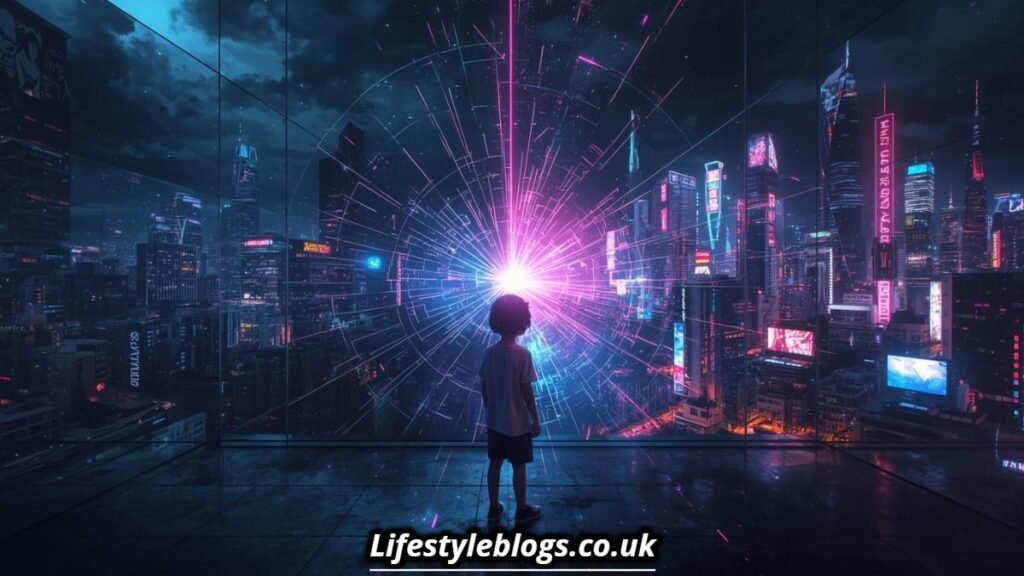When you hear the term “Sankaka Complex”, what comes to mind? For some, it represents a psychological phenomenon rooted in sibling dynamics, introspection, and emotional conflict, while for others, it’s the name of a popular online hub for anime, manga, and Japanese pop culture.
Both interpretations have gained attention worldwide, making this term truly intriguing and multi-layered. In this article, we’ll explore both perspectives in detail — while adding history, controversies, and future insights you won’t find everywhere.
Sankaka Complex as a Psychological Concept
A Brief Introduction
At its core, the psychological meaning of the Sankaka Complex analyzes sibling relationships, rivalry, and emotional turmoil. It especially focuses on how firstborn children may experience jealousy, resentment, or rivalry towards younger siblings when they feel they’ve “lost” their parents’ attention or affection.
Though not officially recognized in clinical psychology, it reflects patterns many people resonate with: overthinking, sibling conflict, and self-doubt.
Historical & Philosophical Roots
- Draws inspiration from Eastern philosophies emphasizing self-awareness.
- Parallels to Jung and Freud’s theories on family dynamics and the unconscious.
- Found across multiple cultures, not just Western ones, with unique cultural expressions of sibling rivalry.
Core Characteristics of the Sankaka Complex
- Feelings of Resentment → Eldest child perceives loss of parental affection.
- Sibling Rivalry → Competition for recognition, rewards, or attention.
- Emotional Turmoil → Low self-esteem, anxiety, jealousy, or fear of rejection.
- Overthinking & Introspection → Replaying past interactions, fearing judgment.
Impact on Life
- Personality Development → Eldest may develop perfectionism or achievement drive.
- Interpersonal Relationships → Struggles with trust, jealousy, or dominance in friendships and romantic life.
- Mental Health → May contribute to anxiety, depression, or low self-esteem.
Coping & Overcoming the Sankaka Complex
- Self-Awareness → Recognizing emotions is the first step.
- Therapy & Counseling → Address deep-rooted patterns.
- Mindfulness & Journaling → Reduces overthinking.
- Healthy Communication → Reframes sibling relationships from rivalry to support.
- Reframing Perspective → Seeing siblings as allies instead of competitors.
Myths & Misconceptions
- Only affects eldest children → False, can occur in any sibling position.
- Inevitable for all siblings → False, parenting style & environment matter.
- A mental disorder → False, it’s a concept, not a diagnosable illness.
Future of Psychological Study
As family structures evolve, researchers are exploring how modern parenting, cultural shifts, and even technology (like social media comparisons) influence sibling rivalry and self-perception.
Sankaku Complex Website: A Pop Culture Powerhouse
Beyond psychology, Sankaku Complex (commonly spelled this way) is a famous Japanese pop culture website, considered a cornerstone of otaku communities worldwide.
History & Evolution
- Early 2000s → Started as an anime/manga image board.
- Grew into a news, discussion, and fan-art hub.
- Expanded into gaming, editorial blogs, and controversial topics.
- Today, it’s a global otaku platform with a dedicated fanbase.
What the Website Offers
- Anime News & Reviews → Storyline analysis, character development, animation critiques.
- Manga Highlights → Latest chapter updates, industry trends, and recommendations.
- Gaming Coverage → VR, mobile, and niche Japanese gaming scenes.
- Community Features → Forums, fan art uploads, and active discussions.
- Editorial Content → Opinion pieces, behind-the-scenes insights, and provocative takes on pop culture.
Community & Cultural Impact
- Connects fans globally.
- Promotes indie artists and creators.
- Shapes anime trends and even sparks industry debates.
- A platform where fans, critics, and creators interact.
Controversies
- Known for explicit and uncensored content.
- Critics say it promotes objectification.
- Supporters defend it as freedom of artistic expression.
- Ongoing debate on censorship vs. creativity.
Navigation & Safety Considerations
- The site includes mature content — not safe for all audiences.
- New users should approach with discretion.
- Alternatives exist for those seeking safer platforms.
Alternatives to Sankaku Complex
- Pixiv → For digital art lovers.
- Danbooru → Anime image collections.
- Reddit Communities → r/anime, r/manga.
- FurAffinity → For niche fandoms.
Influence on Global Pop Culture
Sankaku Complex doesn’t just report on anime culture — it shapes conversations, fuels memes, and influences how fans engage with Japanese media worldwide.
The Future of Sankaku Complex
- Likely to integrate VR/AR experiences.
- Push for inclusive, diverse representation.
- Will need to balance regulatory challenges and creative freedom.
Bridging Both Worlds
At first glance, the psychological concept and the website may seem unrelated. But both share a theme of identity and connection:
- The psychological Sankaka Complex → about internal struggles & family identity.
- The website Sankaku Complex → about community identity & cultural belonging.
FAQs
Are the two meanings of Sankaka Complex related?
No, they developed independently.
Is the website safe for all audiences?
No. It contains explicit content, so viewer discretion is advised.
How do I cope with psychological Sankaka Complex?
Through mindfulness, therapy, reframing sibling dynamics, and healthy communication.
What are some alternatives to the website?
Pixiv, Danbooru, Reddit, and FurAffinity.
Final Thoughts
The Sankaka Complex is a fascinating concept that spans both psychology and pop culture. Whether you’re exploring its role in sibling rivalry and personality development, or diving into its impact on anime and manga communities, one thing is clear: it reflects the power of relationships, identity, and culture in shaping how we think and connect.

